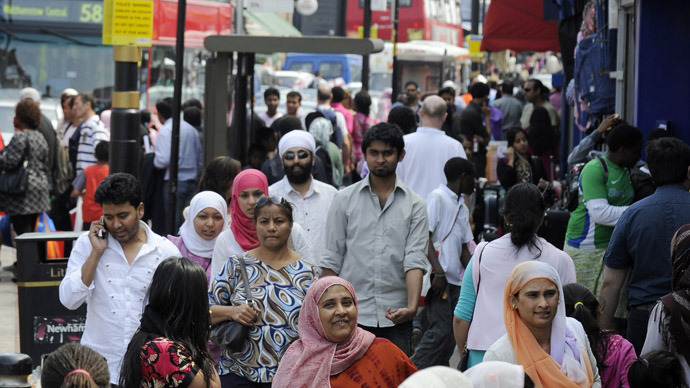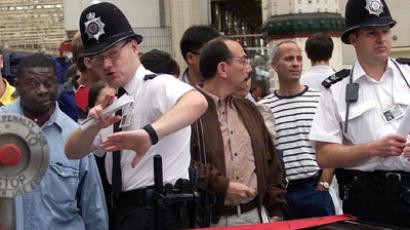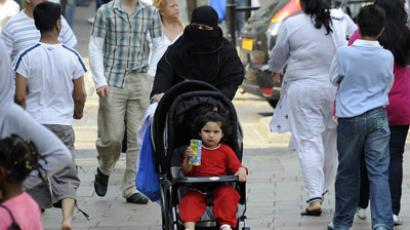‘White flight’ in UK as mass immigration leads to segregation

New census figures reveal that white Britons are leaving areas where they are in a minority as a leading think-tank warns Britain is “sleepwalking into segregation.”
White Britons are leaving areas where they are in a minority and are being replaced by immigrants and other ethnic minorities, a study by the Demos think-tank has found.
As a result of ‘white flight’, nearly half of ethnic minorities in the UK – about 4 million people – live in communities where whites make up less than half of the population.
Demos found that areas where whites are a minority were becoming populated by new British ethnic minorities like Somalis, who often take up housing vacated by established older ethnic minorities like Afro-Caribbeans.
Ethnic minorities now number 4.1 million people living in council wards in which whites, including foreign nationals such as Eastern Europeans, make up less than half the total. This compares to only a million ethnic minorities in the same situation at the time of the 2001 census.
But the study also found that more ethnic minority families are moving into areas which have previously been white-dominated. In 2001 there were 5,000 council wards where the population was 98 per cent white; whereas now there are just 800 wards out of 8,850 with less than 2 per cent of ethnic minorities.
This process has been coined the ‘Ambridge effect’ and refers to the arrival of ethnic minority characters in recent years in the traditional rural British setting of the long running Radio 4 soap the Archers, which is set in the fictional village of Ambridge.
Trevor Phillips, the former chairman of the Equality and Human Rights Commission, told the UK media that the figures were “not good news for integration” and should make us “a little anxious”.
As recently as 2005, Phillips warned that Britain was “sleepwalking into segregation.”
“And it is the clear result of Labour’s mass immigration policy,” Sir Andrew Green, chairman of the Migration Watch think-tank and pressure group told the Daily Mail.
After coming to power in 1997, Labour deliberately relaxed immigration rules to open up the economy and also for political reasons to make Britain more multicultural and to make the arguments of right wing politicians appear obsolete.

“The case for a sharp reduction in immigration is now overwhelming; we cannot possibly integrate new arrivals on anything like the present scale,” said Green.
It was reported earlier in the year that more than 600,000 white British Londoners have left the capital in the last decade.
Between 2001 and 2011, 620,000 Londoners – the same number of people that live in a city the size of Glasgow – have moved out.
While the total population of London shot up by more than a million to 8.2 million, over the same period only 3.7 million Londoners called themselves white British in 2011, down from 4.3 million in 2001.
Behind white Britons, the second-largest ethnic group in the capital is Asians at 18 per cent, flowed by black Londoners at 13 per cent.
“The greater concentration of the ethnic minority population means there is less opportunity for interaction with the white mainstream,” which would lead to “limited familiarity with majority cultural codes,” David Goodhart, the director of Demos told the Daily Mail.
During the 1980s Britain was plagued with race riots in a number of major cities. However, the riots of 2011 were more to do with a general breakdown of some parts of UK society and were not deemed as racially-motivated.













